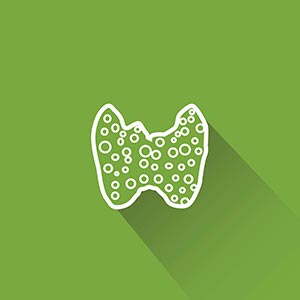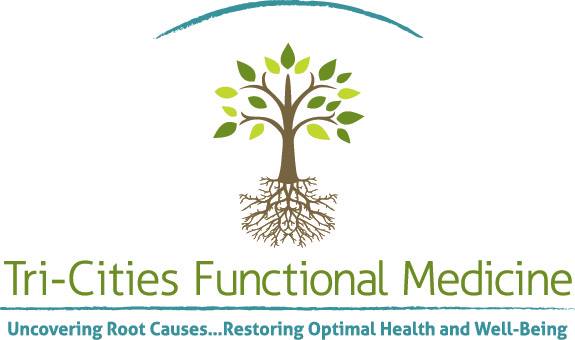Natural Hypothyroidism Treatment in Walnut Hill, TN

Hypothyroidism, also known as underactive thyroid, occurs when the thyroid gland does not produce enough thyroid hormones. Thyroid hormones are involved in nearly every process in the human body, and hypothyroidism causes many of them to slow down.
Both synthetic and natural therapy for hypothyroidism are available in the form of hormone replacement. In addition to restoring thyroid hormone levels, changes in diet can also aid thyroid function.
To schedule a consultation with an alternative endocrinologist in Walnut Hill who specializes in natural treatment of hypothyroidism, call (423) 301-6964 or contact Dr. Joseph Radawi online.
What Is Hypothyroidism?
Hypothyroidism is an endocrine disorder that results from insufficient hormone production by the thyroid gland, a butterfly-shaped gland located at the base of the neck. According to the National Institute of Diabetes and Digestive and Kidney Diseases, 4.6% of adult Americans suffer from hypothyroidism.
The most common cause of hypothyroidism is Hashimoto's thyroiditis, an autoimmune condition characterized by the body attacking its own thyroid gland. Hypothyroidism can also be caused by dysfunction in several parts of the body:
- The thyroid gland (primary hypothyroidism)
-
The pituitary gland (secondary hypothyroidism)
A defective or missing pituitary gland can cause secondary hypothyroidism because it releases TSH, or thyroid-stimulating hormone, without which the thyroid does not release enough of its own hormones. -
The hypothalamus (tertiary hypothyroidism)
Hypothalamus dysfunction can cause hypothyroidism by failing to make enough TRH, or thyroid-releasing hormone, which tells the pituitary gland to release TSH. Hypothyroidism may also occur after menopause, but is often not severe enough for medical intervention (subclinical).
Symptoms of Hypothyroidism
Symptoms of hypothyroidism can include:
- Hair loss
- Dry skin
- Brittle nails
- Jaundice (yellowing of the skin)
- Slow body movements
- Inability to tolerate cold
- Fatigue
- Memory problems
- Depression
- Constipation
- Heavy or irregular periods
Diagnosing Hypothyroidism
Hypothyroidism is usually diagnosed with blood tests that measure levels of TSH (thyroid-stimulating hormone), as well as tests that measure your levels of TSH. Tests that measure levels of the thyroid hormones T4 and T3 may also be performed.
Treatment for Hypothyroidism
There is rarely a way to completely fix hypothyroidism, naturally or synthetically. However, the disease is frequently manageable with the right therapy.
Hypothyroidism treatment is aimed at restoring the levels of the hormones to healthy levels, which ordinarily involves hormone replacement therapy, but can also involve attempting to stimulate an underactive thyroid gland.
Traditional Hypothyroidism Treatment
Practitioners of traditional medicine are most likely to use the synthetic thyroid hormone levothyroxine, which is a form of the thyroid hormone T4. This is intended to restore T4 to healthy levels and reverse the weight gain and elevated cholesterol levels caused by hypothyroidism. It typically takes approximately a week for synthetic hormone treatment to begin alleviating hypothyroidism symptoms, and finding the right dose may take some experimenting.
Levothyroxine can cause side effects such as:
- Headache
- Insomnia
- Irritability
- Irregular menstrual cycles
- Appetite or weight changes
These side effects may diminish after the right dosage has been determined. Some hypothyroidism patients are unable to effectively convert the synthetic thyroid hormone levothyroxine to its active form, T3, and may also be prescribed a synthetic T3 supplement. T4 and T3 supplements are usually prescribed separately in traditional medicine.
Proper absorption of thyroid hormone supplements is crucial for treatment to work. An endocrinologist may suggest that a patient taking thyroid hormone supplements avoid other medications or supplements that contain:
- Iron
- Calcium
- Cholestyramine (used to treat diarrhea)
- Aluminum hydroxide (found in some antacids)
Hormone replacement therapy is ordinarily the only hypothyroidism treatment prescribed by practitioners of traditional medicine.
Natural Thyroid Supplements
Some people with hypothyroidism may choose natural remedies for hypothyroidism because they want to supplement their traditional treatment, or because they have experienced side effects from traditional treatment.
Healing hypothyroidism naturally is also a promising option for those patients who are unable to convert T4 to T3 and do not want to take two separate T4 and T3 medications. To treat those cases, alternative healthcare providers may recommend a natural (isolated from pig thyroid gland) thyroid hormone supplement that contains both T4 and T3 instead.
Patients who are able to convert T4 to T3 may experience side effects like anxiety and rapid heartbeat if they take a T3 supplement, so it is important to consult your endocrinologist about T3 therapy.
Other side effects of natural thyroid hormone supplements may include:
- Hair loss (usually temporary)
- Increased sweating or sensitivity to heat
- Mood swings
- Anxiety
- Fatigue
- Diarrhea
- Tremors
- Headache
- Shortness of breath
Both synthetic and natural thyroid supplements can cause serious side effects if the dosage is too high, such as chest pain, heart palpitations, swelling in the hands or feet, and seizures.
Contact your healthcare provider immediately if you experience any of these symptoms.
Hypothyroidism Diet
Many alternative medicine practitioners believe that diet is the key to feeling your best with hypothyroidism, so in addition to thyroid hormone supplements, natural treatment of hypothyroidism may involve diet changes.
Some foods and nutrients may be beneficial for patients with hypothyroidism because they contain chemicals that can stimulate the thyroid gland. These include:
- Spinach
- Brazil nuts
- Fish and shellfish
- Berries
- Yogurt
Some foods and substances should be avoided because they interfere with the ability to absorb hypothyroidism medication or production of thyroid hormones. These foods include:
- Soy
- Cruciferous vegetables like kale, broccoli, and cabbage
- Trans fats
- Processed sugar
- Excess fiber and iron
- Caffeine
- Alcohol
Request Your Appointment Today
Hypothyroidism may often be a lifelong illness, but it can frequently be manageable with the right treatment. If you have hypothyroidism, hormone replacement therapy and diet changes may have you feeling your best again.
To meet with an alternative endocrinologist in Walnut Hill who can assist you in healing hypothyroidism naturally, call (423) 301-6964 or contact Dr. Joseph Radawi online.
Tri-Cities Functional Medicine
Address
404 S. Roan St.Johnson City, TN 37601
(423) 301-6964
www.tcfxmed.com
Hours
Mon:
8:00 am - 5:00 pm
Tue:
8:00 am - 5:00 pm
Wed:
8:00 am - 5:00 pm
Thu:
8:00 am - 5:00 pm
Fri:
Closed
Sat:
Closed
Sun:
Closed

